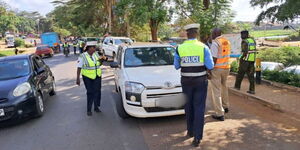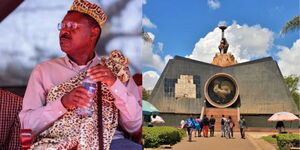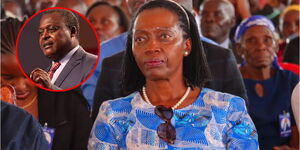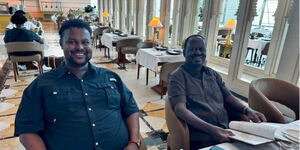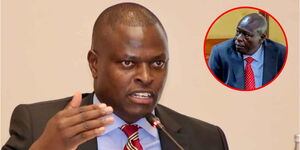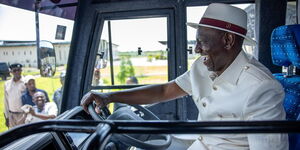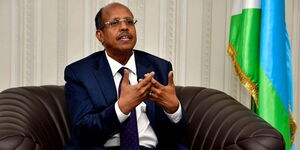The political union between National Super Alliance (NASA) leader Raila Odinga and former President Daniel Arap Moi ahead of the 2002 General Election was symbolised by tension, schemes and mind games by both players.
In his autobiography, The Flame of Freedom, Odinga reveals what pushed him to make the ‘Kibaki tosha’ declaration that cleared the way for former President Mwai Kibaki’s election in 2002 as the third President of Kenya.
The former Prime Minister indicates that his woes with Moi began in 1997 when he publicly accepted the presidential results pointing out that his unity with the KANU leader was aimed at bringing legal and constitutional reforms to set the proper pace for Kenya in the transition era.
He noted that he extended the hand of co-operation to “all parties committed to reforms, in the belief that the artificial divide which had caused untold suffering to ordinary Kenyans shall be bridged in the interest of peace, stability, progress and national development.”
“Our primary objective in merging with KANU had been to ensure the introduction of the constitutional reforms that the country desperately needed. If that was not possible, it was necessary to break KANU from within and end its 40-year stranglehold on the nation. I embraced these concepts as my mission,” he wrote.
He further noted that he knew that Mr Moi wanted a majority in Parliament and he took the chance to enjoin Mr Moi's political party with the hope that he would succeed him as Kenya's next President.
Unknown to him, however, is that the KANU Party leader only wanted to use him in a bigger succession plan, in which the star player was the current President, Uhuru Kenyatta.
“Moi had other plans. Several of his close confidants, presumably wary of my growing influence, apparently wanted to ensure I was stopped in my tracks – and they decided Uhuru was the man to do it.” Mr Odinga stated adding that the would-be politician’s main sponsors were current Deputy President William Ruto, Moi’s close aide Joshua Kulei, his nephew, Hosea Kiplagat and his son Gideon Moi.
He also blames Ruto, who was then a fast-rising, politician for his woes that ultimately made him leave the KANU party.
According to the book, Mr Ruto began undermining the NASA leader a day after KANU and Odinga's National Development Party (NDP) merged at Kasarani Sports Centre, Nairobi.
“All the same, I knew Moi, and I knew this was a long shot. I had other plans in mind should our objective not be realised,” Mr Odinga wrote.
The Opposition leader, therefore, moved to the Liberal Democratic Party and went into an alliance with Mr Kibaki, the late Kijana Wamalwa and Kitui Governor Charity Ngilu’s National Alliance Party of Kenya (NAK), to form the National Rainbow Coalition, which went on to win the 2002 elections.
Mr Odinga said he decided to sacrifice his ambitions and back Mr Kibaki to stem the tide and on October 14, 2002, at a massive rally at Uhuru Park ending KANU's long term rule.

